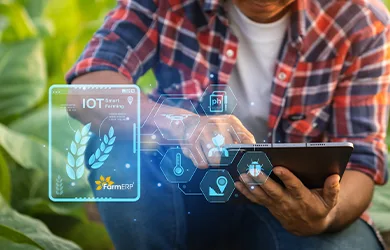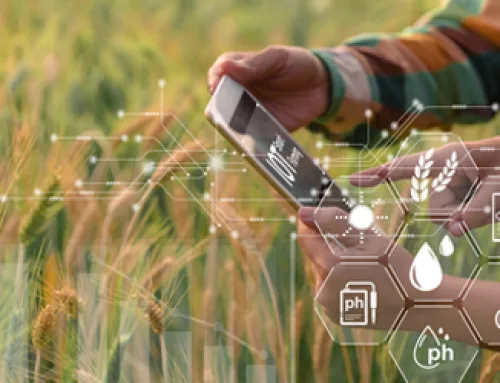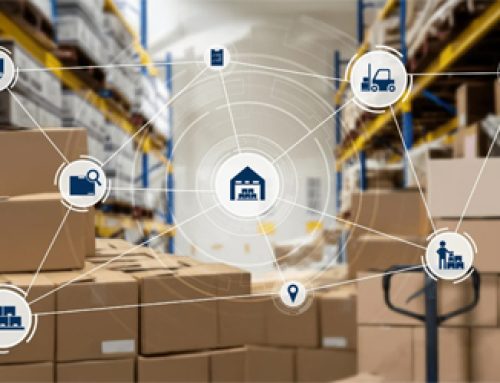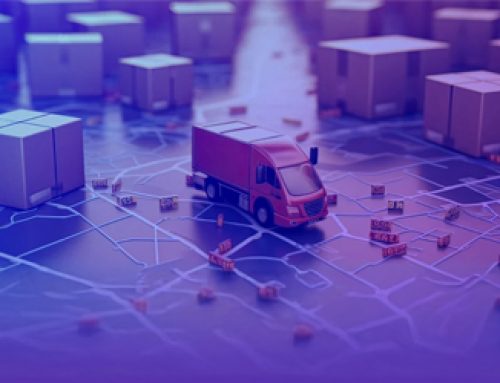Unlocking the Potential of Farm Management Software for Successful Sustainable Agriculture
In a world where the demand for food is steadily increasing, agriculture finds itself at a crossroads. Traditional farming practices often strain natural resources, contributing to deforestation, water scarcity, and soil degradation.
However, with the rapid advancements in technology, a new era of sustainable agriculture is dawning. By embracing cutting-edge innovations, farmers can optimize resource utilization, reduce environmental impact, and secure a more resilient future for food production.
From precision farming to smart irrigation systems, from drones to farm management software, the possibilities seem endless. But how can technology make agriculture more sustainable? Let’s explore the transformative potential of these innovations and understand how they are reshaping the way we cultivate and harvest our food.
Why is sustainable agriculture important to our future?
As the global population continues to grow, the need for food production escalates, placing unprecedented pressure on our natural resources and ecosystems. In this context, the importance of sustainable agriculture becomes evident, as it offers a holistic approach to ensure the long-term viability of our food systems while mitigating the environmental impact.
One of the primary benefits of sustainable agriculture lies in its ability to optimize resource utilization. By employing practices that conserve water, protect soil health, and reduce the use of harmful chemicals, sustainable agriculture minimizes the depletion of finite resources and preserves the delicate balance of ecosystems. Furthermore, it promotes biodiversity and preserves genetic diversity, safeguarding the resilience of our food production systems.
Additionally, sustainable agriculture helps combat climate change by reducing greenhouse gas emissions and promoting carbon sequestration. It encourages the adoption of renewable energy sources, promotes agroforestry, and implements efficient land management practices that contribute to mitigating the impacts of climate change.
What are the top 3 technology innovations in agriculture?
Technological innovations have the potential to revolutionize agriculture, making it more sustainable, efficient, and resilient. By harnessing the power of the following technologies, farmers can meet the growing demands for food while minimizing environmental impact and conserving natural resources.
- Precision agriculture:It utilizes advanced technologies such as GPS, remote sensing, and data analytics to optimize farming practices. By collecting and analyzing data on soil conditions, crop health, and weather patterns, farmers can make precise decisions regarding irrigation, fertilization, and pest control. This targeted approach minimizes resource wastage, reduces environmental impact, and enhances overall productivity.
- Internet of Things (IoT) and Sensors:These technologies are revolutionizing agriculture by enabling real-time monitoring and automation. Sensors placed in the field can collect data on soil moisture, temperature, and nutrient levels. This information, combined with IoT connectivity, allows farmers to remotely monitor and control various farming operations, optimizing resource usage, and improving crop management.
- Robotics and Automation: Robotic systems and automation have transformed labor-intensive tasks in agriculture. Robotic devices can perform activities such as planting, harvesting, and weeding with precision and efficiency. Automation reduces the need for manual labor, increases productivity, and reduces operational costs. It also minimizes the use of chemical inputs and promotes sustainable farming practices.
Harnessing Farm Management Software for Sustainable Farming
Farm management software can help farmers streamline their operations, improve resource management, and implement sustainable farming practices. These tools empower farmers with data-driven insights, enabling them to make informed decisions that promote environmental stewardship, economic viability, and long-term sustainability in agriculture.
- Crop Management
Farm management software like FarmERP provides farmers with tools to optimize crop planning, monitor growth stages, and track inputs such as fertilizers and pesticides. These applications enable farmers to make data-driven decisions, minimize resource wastage, and reduce the environmental impact of farming practices. They provide insights into crop health, pest and disease management, and yield predictions, helping farmers implement sustainable and efficient farming techniques.
- Irrigation Management
Water is a critical resource in agriculture, and its efficient use is vital for sustainable farming. FarmERP assists farmers in monitoring soil moisture levels, weather conditions, and crop water requirements. By providing real-time data and analytics, these tools enable farmers to optimize irrigation schedules, reduce water waste, and conserve this precious resource, contributing to sustainable water management in agriculture.
- Field Mapping and Precision Agriculture
For field mapping and precision agriculture applications, FarmERP utilizes technologies like GPS and satellite imagery to create detailed maps of farm fields. These tools enable farmers to analyze soil variations, optimize seed planting, and apply inputs (such as fertilizers and pesticides) precisely where needed. By minimizing resource overuse and improving crop targeting, these applications contribute to sustainable farming practices and environmental stewardship.
- Inventory Management
FarmERP for inventory management provides farmers with tools to efficiently track and manage their inventory of agricultural inputs and products. These software applications enable farmers to keep records of stock levels, monitor expiration dates, track usage, and streamline the procurement process. By optimizing inventory management, farmers can minimize waste, ensure timely availability of inputs, and improve overall operational efficiency on the farm.
- Supply Chain Management
Sustainable agriculture goes beyond on-farm practices; it encompasses the entire supply chain. For supply chain management, FarmERP assists farmers in tracking and managing the movement of their agricultural products from farm to market. These tools enable farmers to improve traceability, minimize waste, and ensure fair trade practices, contributing to a more transparent and sustainable agricultural value chain.
- Financial and Resource Planning
Effective farm management requires careful financial planning and resource allocation. FarmERP’s financial and resource planning feature provides farmers with tools for budgeting, resource management, and cost analysis. By helping farmers optimize input usage, reduce waste, and make informed financial decisions, these applications support sustainable farming practices while ensuring economic viability.
Sustainable Agriculture Technology: The Road Ahead
The sustainable agriculture technology like FarmERP of the future holds immense promise for transforming the way we cultivate and produce food. Advances in precision agriculture, coupled with the integration of artificial intelligence, data analytics, and robotics, will enable farmers to optimize inputs, reduce waste, and enhance productivity while minimizing environmental impact.
These technologies will further contribute to the development of resilient crop varieties that can withstand climate change and require fewer chemical inputs. As we embrace these cutting-edge technologies, sustainable agriculture will pave the way for a more food-secure, resilient, and environmentally conscious future.
Take your farm management to the next level with FarmERP. Streamline operations, optimize resource utilization, and increase productivity. Experience the power of data-driven decision-making and transform your farming practices for a sustainable future. Contact us today and unlock your farm’s full potential.



